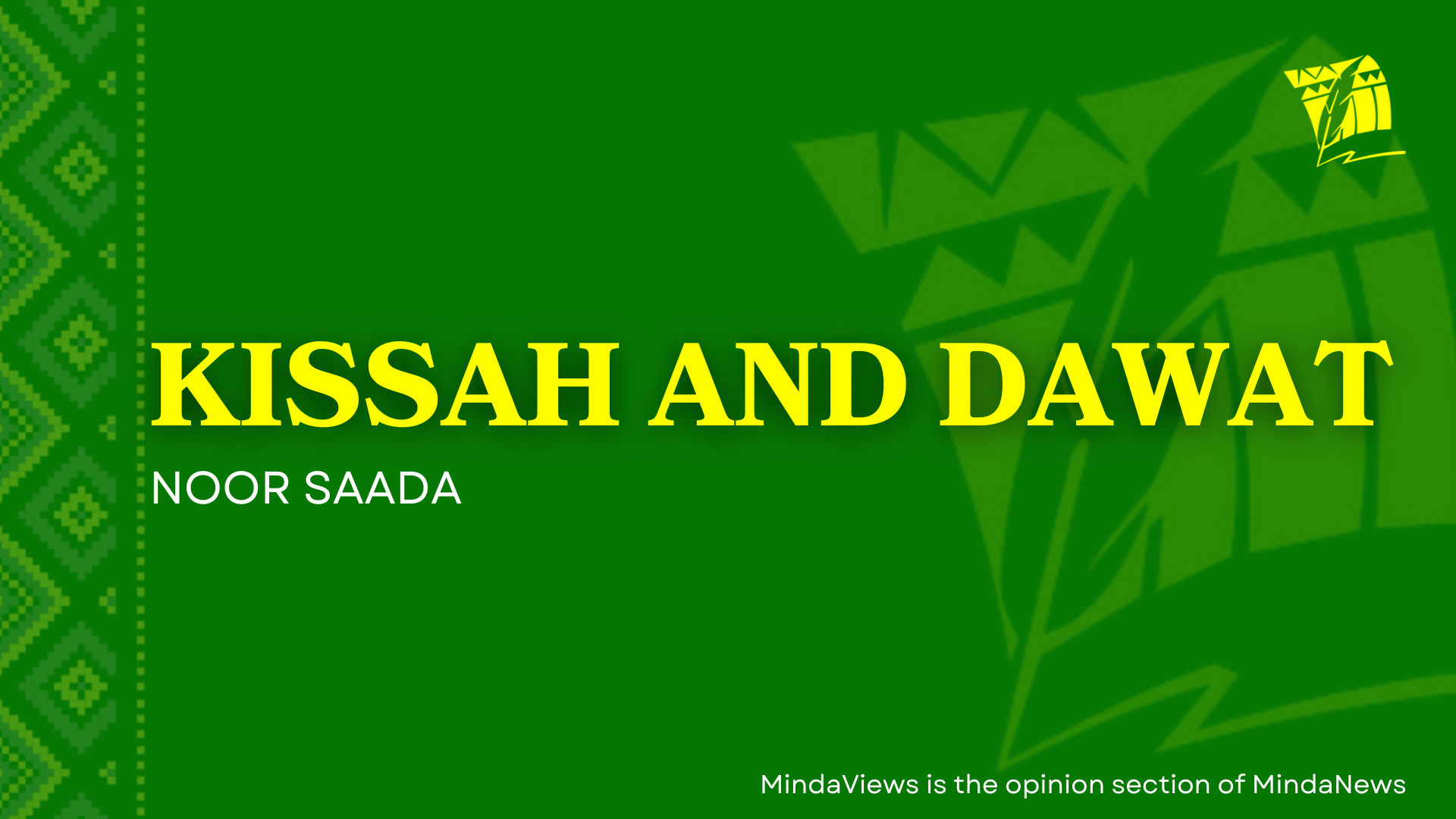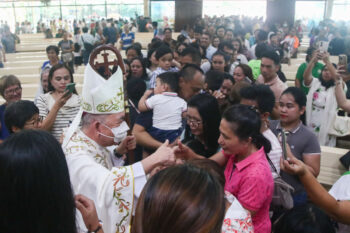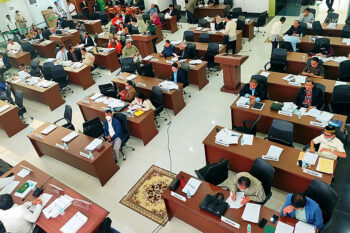
ZAMBOANGA CITY (MindaNews / 25 Aug)—Over these recent days, individuals known to us have been transitioning to the next world. As Moros, we possess our own perspectives and approaches when it comes to addressing the matters of mawt (death) and qubur (grave). This is intricately linked with the identity of being a Moro, which is deeply intertwined with being a Muslim and a follower of Islam.
“A Moro is a Muslim,” captures this identity and this was the notion of the first Spanish contingent upon their arrival in the 15th century to our shores. They adopted the term “Moro” to describe the inhabitants they encountered, drawing parallels with the history of their own land, the Iberian Peninsula, which had been under Moorish rule for nearly 800 years (711 to 1492).
Although the Spanish presence in the Philippines lasted for only around 300 years (1565 to 1898), the label “Moro” endures as synonymous with being a Muslim. Presently, it remains implausible for a Moro to identify as anything other than a faithful follower of Islam. The Moro’s strong affiliation with Islam is rooted in a Qur’anic verse frequently mentioned by the ‘ulama (religious leaders): “And hold firmly to the rope of Allah, all together, and do not become divided. And remember the favor of Allah upon you—when you were enemies, He brought your hearts together, and you became, by His favor, brothers …” (Verse 103, Chapter 3: Ali Imran, Holy Qur’an, Saheeh International translation).
The Moro’s daily life is deeply imbued with religious practices, most notably the observance of the five daily prayers. This way of life is intertwined with a pursuit that may appear to outsiders as markedly “religious” rather than secular, or as distinctly “Arabic” in contrast to the more commonplace worldly pursuits of mainstream Filipinos. These tendencies are reinforced by the constant reminders from our ‘ulama, the religious leaders, who convey their messages from the mimbar, the elevated pulpit within the masjid, or mosque. These teachings are also imparted through the lessons in madrasah classes and persist even within informal gatherings, often delivered as nasihah, which encompasses advice, admonitions, and reminders.
The central theme underpinning these reminders is the inevitability of death. It serves as a stark presence, lurking perpetually around the corner of our lives. Considering this constant reminder, we are earnestly cautioned against excessive engagement in worldly affairs. Instead, we are encouraged to constrain our involvement in these pursuits to the essentials required for a modest livelihood. The ever-present specter of death serves as a compelling motivation to prioritize spiritual devotion and adherence to religious principles over the accumulation of material wealth or other transient matters.
To further emphasize this “around the corner” perspective, we are replete with stories: a person died while delivering a sermon, another person while performing their wudhu’ (ablution) or salah (prayer), someone simply slept and did not wake up, and so on. A good death is one that occurs while performing acts of worship or righteous deeds. It is ingrained in the du’a (supplication) of every Muslim to die amid these meritorious acts. This is why Islam encourages us to make Salatul-Isha, the early night prayer, the last act before we sleep at night; and to express our gratitude to the Almighty for “giving us life after He has caused us to die” as the first thing we do upon waking up for the Salatul-Fajr (pre-dawn prayer).
Thus, every Muslim is reminded of how fleeting this dunyawiyyah (worldly life) is and should not fail to see it as a transition towards a more permanent life in the akhirah (hereafter). Therefore, we are admonished to live in a way that strengthens our aqīdah (belief, faith), to engage in more ibadah (worship), and perform amal salīh (righteous deeds). Simultaneously, we should minimize thoughts, words, and deeds that tend to draw us closer to acts of tanāqudz (inconsistency), kufr (infidelity), and shirk (polytheism). Since the Almighty is aware of our thoughts, our riya’ (insincerity, hypocrisy, pretense) is known to Him and dilutes the quality of our merits.
The consciousness about death is more pronounced when someone dies within our circle. When Malak al-Mawt (the Angel of Death) has been instructed to take the soul from a body, and the person is pronounced dead, it becomes a fardhu kifayah (collective obligation) of the Muslim community to wash the body of the deceased (ghusl mayyit), to pray for the deceased (salatul janazah) and to bury the deceased (al-dafin). When a group of Muslims have stepped up to perform these obligations, the rest of the Muslim community is free from the collective responsibility.
When we cross the Barzakh (an intermediary stage between this life and another life in the Hereafter) or the point of no return, only three things will continue to accrue to us in positive ways:
(1) ‘Ilman nafi’an or beneficial knowledge—Knowledge that we have acquired during our lifetime and that has been used to benefit others and improve our understanding of the world. For example, if someone spent their life studying medicine and their research and teachings have helped save lives and advance medical practices, that knowledge will continue to benefit others even after they have passed.
(2) Sadaqatul jariyah or ongoing charity—The charitable acts and contributions that we made during our life continue to provide support and assistance to those in need. For instance, a building constructed for a mosque or madrasah will benefit the endower in their grave if people are using it for its intended purpose.
(3) Pious children who will pray for us—If we have raised our children with strong moral and spiritual values, they are likely to continue those practices and remember us in their prayers after we are gone. For instance, if a parent has instilled a sense of devotion and compassion in their children, those children’s prayers for their parent’s well-being will be a source of continuous blessings.
In Islamic theology, it is made clear that no human has entered Jannah (Paradise) or Jahannam (Hell). Only a few have entered in “spirit,” but not in a physical body. This implies that since the creation of humans, all our deceased individuals are in the qubur, awaiting the Trumpet for the great assembly of Yawm al-Qiyamah (the Day of Judgment).
Meanwhile, while waiting in their respective grave, the ‘ulama remind us that in the qubur, we each shall have a companion who personifies the accumulated deeds we had on earth. Good deeds are personified into a wholesome-looking fellow, while bad deeds are personified into a repulsive figure we would not even like to gaze upon or approach.
Besides personifying our deeds on earth, we will also have windows—a window to heaven if we have been good, which we eagerly await in anticipation, and a window to hell as a prelude to hellfire if we have been engaging in bad actions, leading us to lament what awaits us.
These are reminders that there are repercussions for our earthly deeds in the hereafter. Life is not a free ride; we have a purpose and a lifetime to re-discover it, as it is assumed that we were made aware of this purpose and established as a pact with the Almighty. Therefore, our life on earth is dedicated to rediscovering our purpose. In the end, whether we are ready or not, prepared or not, and whether we have rediscovered the pact or not, we are accountable for our own individual lives.
We are accountable for both our actions and the consequences that stem from them. This accountability extends beyond the individual level, encompassing the responsibility we hold for those under our care or stewardship. Parents, for instance, bear a profound accountability for their families, just as our leaders bear the weight of responsibility for the societies they represent.
On the Day of Judgment, a poignant reminder is found in the Holy Qur’an: “On that Day, people will depart, segregated into groups, to be shown the outcomes of their deeds. Even the weight of an atom’s worth of goodness will be apparent, and similarly, the weight of an atom’s worth of wrongdoing will be manifest.” (Verses 6-8, Chapter 99: Az-Zalzalah, Saheeh International translation).
(MindaViews is the opinion section of MindaNews. Noor Saada is a Tausug of mixed ancestry—born in Jolo, Sulu, grew up in Tawi-Tawi, studied in Zamboanga and worked in Davao, Makati and Cotabato. He is a development worker and peace advocate, former Assistant Regional Secretary of the Department of Education in the Autonomous Region in Muslim Mindanao, currently working as an independent consultant and is a member of an insider-mediation group that aims to promote intra-Moro dialogue.)







